|

Synopsis:
In 1920s America, a mentally disturbed man named Leonard Zelig (Woody Allen) gains notoriety for his chameleon-like ability to adapt both his appearance and his personality to whoever he’s with. When Dr. Eudora Fletcher (Mia Farrow) tries to help Zelig overcome his disorder, the two eventually fall in love — but Zelig’s past actions soon catch up with him, and their happiness is compromised.
|
|
Genres, Themes, Actors, and Directors:
- Comedy
- Mia Farrow Films
- Mockumentaries
- Multiple Personalities
- Psychotherapy
- Woody Allen Films
Response to Peary’s Review:
Peary labels this “bizarre one-joke satire” by Woody Allen “consistently funny” and “technically brilliant”, but is reticent in his praise, arguing that it “never rises to a higher level” — yet his assessment ultimately does an injustice to the brilliance of Allen’s comedic vision here. While the technical aspects of Zelig are justifiably lauded (the insertion of Zelig into real historical footage — done manually, not digitally — is seamless), the story itself remains enjoyable through repeated viewings, and has held up remarkably well. Allen neatly satirizes the titillating disorder of multiple personalities, with Zelig’s story containing notable parallels to 1976’s Sybil, given that Zelig’s female psychologist — just like Sybil’s — persists in her highly personalized efforts to cure her patient, despite scorn and disdain from the male establishment. Whether or not you’re a Woody Allen fan, this satisfying comedy (which, it should be noted, predates Christopher Guest et al.’s cult mockumentaries) should be seen and enjoyed by all film fanatics.
Redeeming Qualities and Moments:
- Gordon Willis’s masterful cinematographic effects
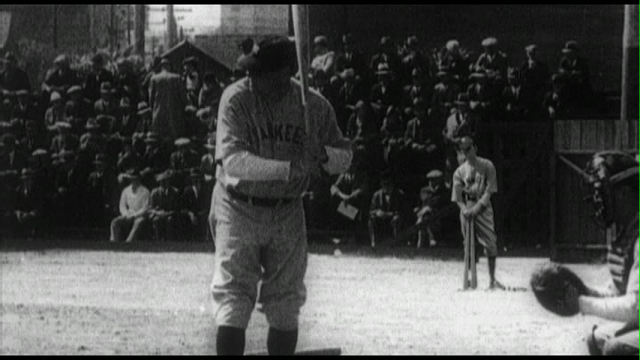
- Allen’s witty screenplay, with plenty of his classic one-liners: “I teach a course on masturbation, and if I’m late, they start without me.”
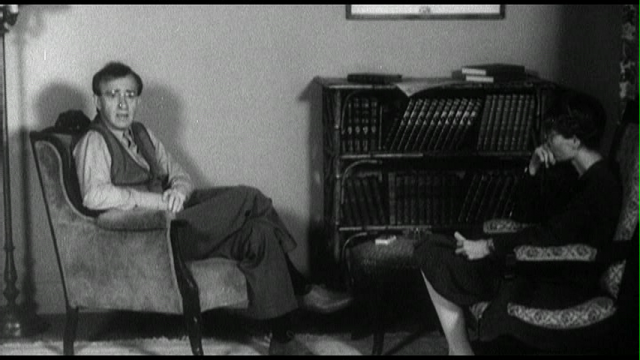
- Zelig’s remarkable physical transformations
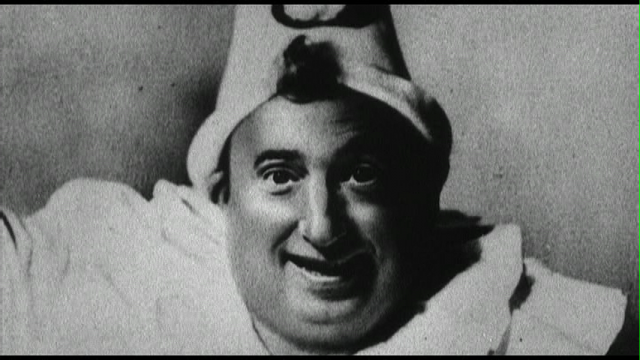
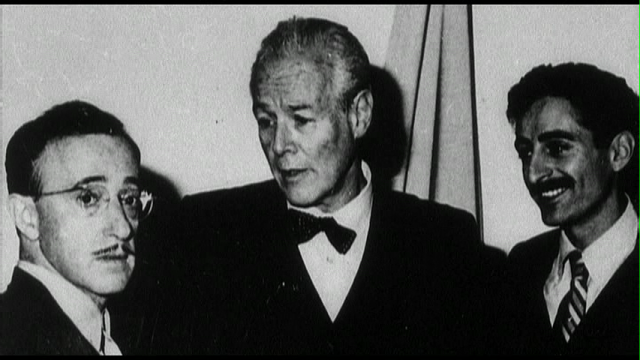
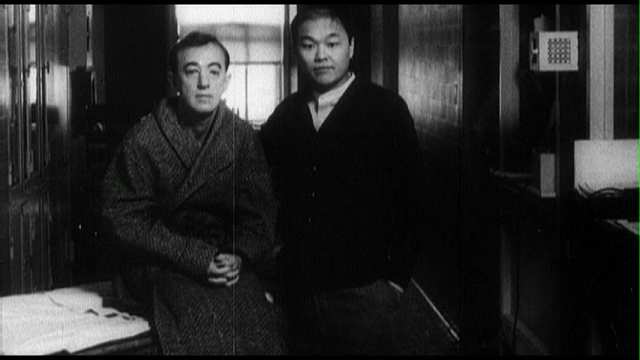
Must See?
Yes, as one of Woody Allen’s enduring comedy classics.
Categories
- Important Director
- Oscar Winner or Nominee
Links:
|
One thought on “Zelig (1983)”
A definite must – one which has not only held up well but which rewards on a revisit.
Having just watched one of Allen’s recent, better films, ‘Midnight in Paris’, a thought to return to ‘Zelig’ seemed logical – considering the films share a preoccupation with the ’20s. And what fun a return to ‘Zelig’ can be! It may be called a one-note movie – but what a note! Allen takes a single idea and exploits it from every aspect of possibility. I can only imagine him repeatedly saying to himself, ‘And what if I…’ …’Then what if…’ …’And then I could…’. I have rarely (if ever) seen a one-joke movie play out so well. But, of course, the main idea happens to be golden.
While watching this time, I couldn’t help but be reminded that a lot of the best comedy comes out of pain. ‘Zelig’ is the story of a man who will do anything (anything!) to be liked and is burdened with a need that appears deeply rooted in insecurity. He wants to be liked for himself – but who is that self? Since he can’t figure out who that is, he ‘becomes’ whoever is closest to him at the time. The result is a very funny movie – with, needless to say, an extremely troubled protagonist.
As an artist, Allen has always been under a lot of pressure to be liked – in other words, to be funny. (This is directly addressed in one of my favorite Allen films, ‘Stardust Memories’.) Making a career out of comedy is a much tougher road than that of any other film form. (And not just film – the wildly inventive cartoonist Gary Larson eventually just up and stopped drawing one day.) Allen eventually realized that he didn’t have to remain confined to feel-good comedies like ‘Sleeper’, etc. He could even (with something like ‘Interiors’) turn to drama if he felt like it – and risk not being liked. But for someone like Allen, that has led to large risk. As a result, Allen’s career itself has been something like Zelig’s life – and he seems to have, in some way, battled with that to a degree in film after film.
Of course…not to read into it too much. Just something I couldn’t help but notice.
‘Zelig’ is a movie that quite often makes me laugh out loud – still – even though I’ve seen it quite a number of times. Part of the reason for that, I think, is that the film is constructed in such a fast-and-furious manner; quite a few of the scenes are very short, very potent, catch you off-guard often – and it’s possible to forget some of the hilarious tidbits coming.
The film also benefits greatly from its documentary form – with footage taking us from (often scratchy) black-and-white to contemporary interviews in color. It’s a somewhat-disorienting juxtaposition at times, but it works extremely well. (In the doc process, two of my favorite performances come, surprisingly, from the very believable Ellen Garrison as Mia Farrow’s present-day Dr. Fletcher, and – though it’s brief – Jean Trowbridge as Dr. Fletcher’s upper-crust mother, being interviewed on the radio while airing a bit of her family’s ‘dirty laundry’. And, though it’s nearly impossible to choose an absolute favorite bit in ‘Zelig’, a standout for me is the depiction of the film Hollywood makes of Zelig’s life, ‘The Changing Man’.)
This is one of Allen’s best, with so much to say, and said so well in a mere, but very full 79 minutes.